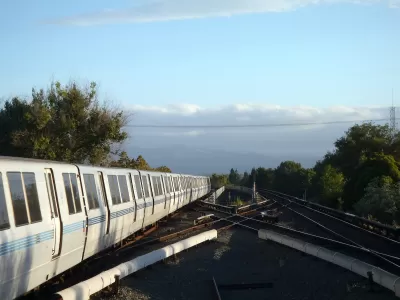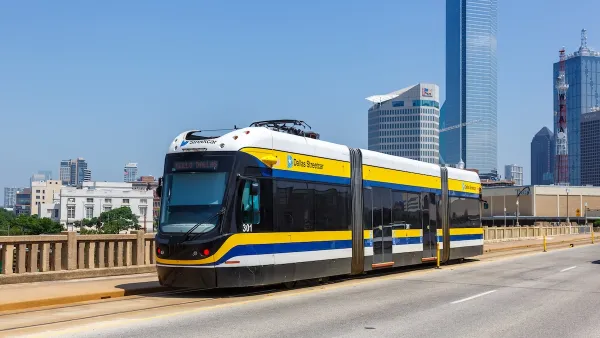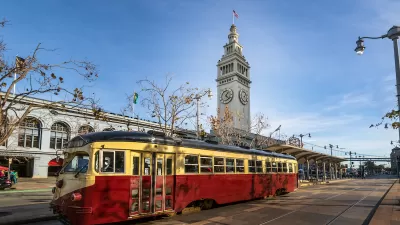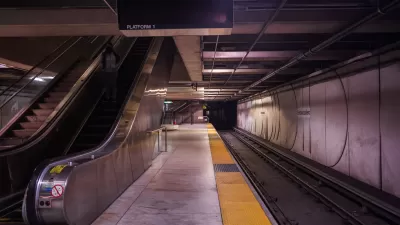The funding supports eight ‘near-term’ projects slated for completion within the next one to three years.

The San Francisco Bay Area’s Metropolitan Transportation Commission (MTC) approved $18.3 million as part of its Bay Area Transit Transformation Action Plan’s Bus Accelerated Infrastructure Delivery (BusAID) program. As John Goodwin explains the the Contra Costa Herald, “The Action Plan aims to improve the Bay Area’s public transportation network to create a more user-friendly and connected system. It identifies key targets and actions to make this vision a reality.”
The funds are targeted to eight ‘near-term’ projects at locations identified as problem hotspots by transit agencies in Concord, Alameda, Oakland, Redwood City, San Francisco, San Jose, and Union City. Each of the projects funded in this round is scheduled for completion within one to three years. Projects include transit speed improvements and signal optimization, bus lane improvements, and new boarding islands, among others. “Each project will include pre- and post-implementation evaluation to quantify project benefits.”
FULL STORY: Bay Area “Transit Transformation” gets $18 million boost

Maui's Vacation Rental Debate Turns Ugly
Verbal attacks, misinformation campaigns and fistfights plague a high-stakes debate to convert thousands of vacation rentals into long-term housing.

Planetizen Federal Action Tracker
A weekly monitor of how Trump’s orders and actions are impacting planners and planning in America.

San Francisco Suspends Traffic Calming Amidst Record Deaths
Citing “a challenging fiscal landscape,” the city will cease the program on the heels of 42 traffic deaths, including 24 pedestrians.

Defunct Pittsburgh Power Plant to Become Residential Tower
A decommissioned steam heat plant will be redeveloped into almost 100 affordable housing units.

Trump Prompts Restructuring of Transportation Research Board in “Unprecedented Overreach”
The TRB has eliminated more than half of its committees including those focused on climate, equity, and cities.

Amtrak Rolls Out New Orleans to Alabama “Mardi Gras” Train
The new service will operate morning and evening departures between Mobile and New Orleans.
Urban Design for Planners 1: Software Tools
This six-course series explores essential urban design concepts using open source software and equips planners with the tools they need to participate fully in the urban design process.
Planning for Universal Design
Learn the tools for implementing Universal Design in planning regulations.
Heyer Gruel & Associates PA
JM Goldson LLC
Custer County Colorado
City of Camden Redevelopment Agency
City of Astoria
Transportation Research & Education Center (TREC) at Portland State University
Jefferson Parish Government
Camden Redevelopment Agency
City of Claremont





























